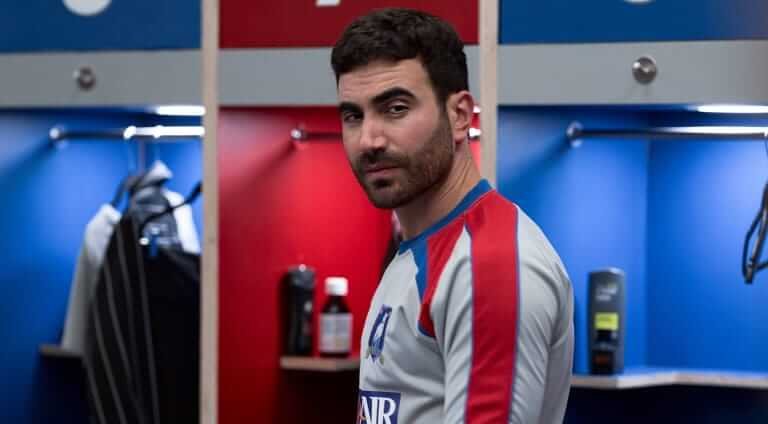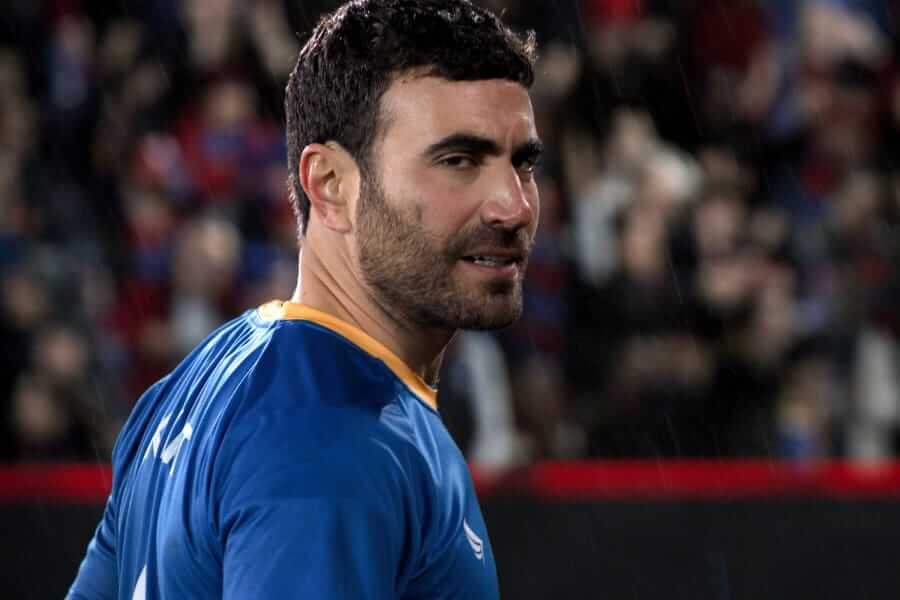Take a Chance | Valet.

Here’s an interesting story about Brett Goldstein, the British actor and comedian who plays the lovably gruff Roy Kent on Ted Lasso. Or rather, about how he was never supposed to be on the series. He was hired as a writer and in the early days of the show’s development, he was hit with an overwhelming sensation. “We were in the writer’s room and by about episode five, I started to think: ‘I really understand Roy Kent. I really understand Roy Kent,’” he told For The Win. But he knew he ran the risk of stepping on someone’s toes if he suggested himself for the part.
“I was so grateful to be writing on the show. It’s so special,” explained Goldstein. “I didn’t want to jeopardize that. I didn’t want to make people uncomfortable by going: ‘Hey, I reckon I could play Roy!’ It would suddenly be, like, I don’t think so man. Then everyone would still have to look at me every day.” But he wasn’t crazy either. After all, he was an actor. He was qualified and who better to portray a character than someone who developed the character?

So he mustered the courage to put an audition on tape and quietly sent it to Jason Sudeikis and the entire production team. He advocated for himself, explaining that he wanted the role and felt he’d make an excellent Roy Kent. But he also mentioned that if the scenes were horrible, then he’d happily go back to being just a writer for the show. The rest, as they say, is history.
When you look back on your life or career to date, are there times where you wish you’d been a little braver? Trusted in your own abilities more? Perhaps been less cautious in the chances you took? We’re not telling you to be careless, but we do want to remind you that with no risk, there is no reward.
For her book, Stop Playing It Safe, author and business coach, Margie Warrell spoke with neuroscientists who showed brain scans that prove that we are neurologically wired to over-estimate the size of risks, under-estimate our ability to handle them, and downplay the costs of inaction. That naturally allows us to stay put, even when we’re less than satisfied. And it often prevents us from taking the very actions that might set us on a path to greater personal happiness and professional success.
To overcome this tendency to play it safe, ask yourself: What’s the best possible outcome if I take this risk? Then ask yourself: How will inaction cost me one year from now if I do nothing? She says we should fear regret more than failure.
Because you know what’s worse than failing? Wondering what might have happened if you had taken a chance. Regret is a nagging feeling that’s hard to shake. While it can be comforting to stay on the safe side, it’s rare that big things happen over there. It’s when you take a leap, trust in your abilities and put yourself out there that you see real success.
Read the original article here






